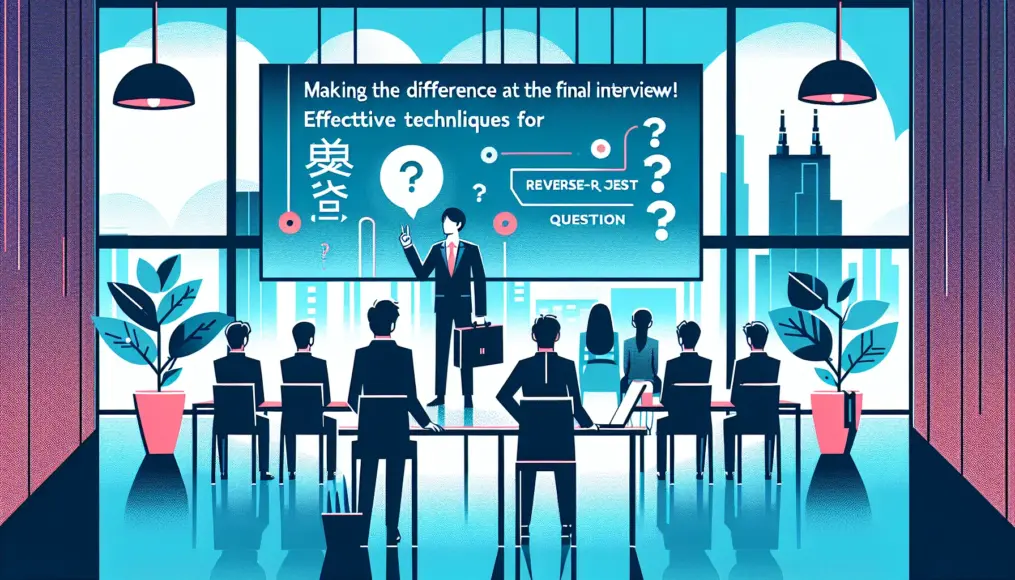Interviews aren’t just about verifying skills and checking resumes; they’re crucial opportunities to uncover a candidate’s hidden talents and personality.
In this article, we’ll explore strategies for identifying these qualities during interviews, including effective questions and psychological approaches. By utilizing these techniques, you’ll be better equipped to spot top talent.
- Mindset for Understanding a Candidate’s True Self
- Techniques for Discovering Talent Through Effective Questions
- The Importance of Building Trust During Interviews
Mindset for Recognizing Talent in Interviews
Interviews are a crucial opportunity to assess a candidate’s abilities and personality. They can be the perfect setting to uncover hidden talents. To make the most of this chance, it’s essential to adopt the right mindset.
Perspectives for Understanding Candidates’ True Nature
As an interviewer, grasping the essence of a candidate is key. It’s important to look beyond just skills and experience to also consider their thought processes and values. This calls for asking open-ended questions that allow candidates to express themselves freely.
Observing candidates’ reactions and expressions during the interview can provide valuable insights. By creating a relaxed atmosphere, you can encourage them to reveal their authentic selves.
- Ask open-ended questions to understand candidates’ values
- Observe reactions and expressions to uncover hidden talent
- It’s crucial to foster a relaxed environment
Preparation as an Interviewer
Preparation is equally important for interviewers. Take the time to thoroughly read and understand candidates’ resumes and work histories. Furthermore, it’s essential to prepare questions that align with the interview’s objectives and your company’s culture.
Being well-prepared helps the interview flow smoothly and builds trust between you and the candidate. This, in turn, enables you to gain deeper insights into their true nature. For specific tips on how to prepare effectively, check out Essential Preparation Points for Job Interviews.
- Carefully review candidates’ materials
- Prepare questions that reflect the purpose of the interview
- Building trust is key to a successful interview
Skills to Uncover Through Effective Questions
In interviews, the way questions are posed plays a crucial role in revealing candidates’ skills and suitability. Open-ended questions and behavioral interview questions, in particular, can significantly help in understanding the true essence of candidates. By utilizing these types of questions, you can gain deeper insights into their capabilities.
The Power of Open-Ended Questions
Open-ended questions allow for free-form responses, giving candidates the chance to express their thoughts and values. For instance, asking, “What achievement are you most proud of?” enables candidates to articulate their strengths in detail.
Through such questions, you can gain insight into a candidate’s thought process and self-awareness. Additionally, their manner of responding can reveal their personality and communication skills.
- Use questions that allow for free responses
- Draw out candidates’ strengths and values
- Help understand their thought processes and personalities
Examples of Behavioral Interview Questions
Behavioral interviews involve asking questions based on candidates’ past actions. A typical question might be, “Can you describe how you overcame a challenging situation at work?” Such inquiries can be effective in assessing a candidate’s problem-solving abilities and resilience under stress.
You can also learn how candidates have collaborated with their teams. Since past behaviors often predict future actions, this approach is highly effective. For more on how to effectively demonstrate stress resilience during an interview, check out How to Showcase Your Stress Resilience in Interviews: Effective Response Strategies.
- Ask specific questions based on past behaviors
- Evaluate problem-solving abilities and stress resilience
- Aid in understanding teamwork and collaboration skills
Psychological Approaches in Interviews
Interviews are influenced not only by skills and experience but also by psychological factors. Building trust with candidates is essential for creating a relaxed atmosphere. By utilizing psychological approaches, you can uncover the true essence and hidden talents of candidates.
The Importance of Building Trust
When there is a foundation of trust, candidates feel freer to express themselves. A friendly and open demeanor from the interviewer is the first step in easing the candidate’s nerves. For instance, starting the interview with some light conversation can help establish a more relaxed environment.
This kind of trust-building encourages candidates to speak openly about their thoughts and opinions. As a result, you’ll gain a deeper understanding of their genuine feelings and values.
- Trust allows for free self-expression
- An open attitude helps alleviate candidate anxiety
- Light conversation creates a relaxed environment
Techniques to Help Candidates Relax
There are several techniques to help candidates feel at ease. First, slowing down the pace of the interview gives candidates the time they need to collect their thoughts. Additionally, when asking questions, incorporating specific examples can help candidates feel more comfortable.
Non-verbal communication is also crucial. Using gestures like smiles and nods while speaking can provide candidates with a sense of reassurance. Through these strategies, candidates will be more likely to speak naturally.
- Slow down the pace of the interview
- Incorporate specific examples in your questions
- Use smiles and nods to provide reassurance
To succeed in interviews, effective communication with candidates is essential. For more details, check out our guide on Ace Your Interview: Understanding the Intent Behind Questions.
Strategic Interviewing for Future Success
Interviews are not just a means to assess skills; they are a strategic process focused on the future of the organization. Understanding whether candidates can adapt to the company culture is crucial for long-term talent development. In this section, we’ll explore the alignment between company culture and candidates, as well as the importance of a long-term perspective in nurturing talent.
Company Culture and Candidate Fit
Company culture reflects the values and behaviors that a company holds dear. Determining whether a candidate aligns with this culture is a critical aspect of the interview process. For instance, a company that prioritizes teamwork will seek candidates who demonstrate strong collaboration skills.
Interviewers can assess a candidate’s fit with the company culture by asking questions that focus on their past experiences and values. This information helps gauge whether a candidate can thrive as part of the team over the long haul.
- Company culture embodies the organization’s core values
- Assess fit through candidates’ past experiences
- Identifying alignment fosters long-term success
Long-Term Talent Development
During interviews, it’s essential to look beyond immediate skills and also recognize a candidate’s growth potential. Considering the roles they might play in the future can contribute significantly to talent development. For example, asking questions like, “What kind of growth do you hope to achieve in the next five years?” can reveal a candidate’s vision.
By understanding candidates’ aspirations and career plans, companies can lay the groundwork for developing the talent they need. Adopting a long-term perspective allows both the organization and the candidate to make the best possible choices. Additionally, for effective interview preparation on questions and candidates’ inquiries, you can refer to Nail Your Next Job Interview! Strategies and Unexpected Tips, which provides valuable insights.
- Recognizing candidates’ growth potential is crucial
- Questions about future vision are helpful
- Building a foundation for talent development with a long-term view
Conclusion
To uncover a candidate’s hidden talents during an interview, having the right mindset and asking effective questions are essential. By building rapport and putting candidates at ease, you can draw out their genuine thoughts and feelings. Focusing on company culture and future growth will help you identify individuals who can thrive in the long run.
- The importance of having the right mindset in interviews
- Utilizing open-ended questions and behavioral interviews
- Ways to build trust with candidates
Try implementing these insights to enhance your interviewing skills and take the next step in your hiring process. We’d love to hear your thoughts and experiences, so feel free to share your comments!



Comment